Status Quo regularly bring the house down at their gigs, but in 1973 their fans tore up Aberdeen’s Music Hall – literally.
Venue staff described the damage as “the worst seen there in 30 years”, and it nearly spelled the end of rock concerts at the Music Hall.
Fans at the sell-out gig were full of high spirits and hijinks – and even the band got in on the action in the backstage green room by plastering the walls and floor in cake.
But the city council’s biggest outrage was reserved for gig-goers who had “ripped out and splintered” seats, vomited on the floor, and flooded the women’s toilets.
Fans queued at Music Hall for Status Quo tickets
For more than 60 years, Status Quo have rocked around the world playing head-banging hits spanning their decades of success.
Having founded in 1962, the band had several top 10 singles under their belt by the time they played Aberdeen’s Music Hall in 1973.
The 1973 line-up included Francis Rossi on lead guitar and vocals; Alan Lancaster on bass guitar and vocals; Rick Parfitt on rhythm guitar and vocals, and John Coghlan on percussion.
It wasn’t Status Quo’s first visit to the city – they’d played the Beach Ballroom in 1969 and 1970, before their first visit to the Music Hall in ’72.
But it was their trip to the Granite City in 1973 that saw the legendary rockers make front-page news in Aberdeen.
Anticipation had been building weeks before the concert.
These were the days when you had to queue down Union Street at the box office to snap up coveted gig tickets.
And fresh from the success of single ‘Caroline’, which reached number five in the UK charts, Status Quo had an army of willing fans in Aberdeen.
But Music Hall chiefs could never have predicted the trail of destruction as the gig turned the stalls into a battle zone.
Audience began to jump around as Quo belted out hits
It was September 25 1973, and the band kicked off with ‘Junior’s Wailing’ as their opening number to an audience of 1500.
‘Someone’s Learning’ and ‘In My Chair’ followed – but the audience very much weren’t in their chairs.
What teenager wanted to watch Status Quo from the comfort of velvet chairs? Not the ones at the Music Hall.
They were up on the seats jumping around, singing and rocking along to their music idols.
Alan Booth of Telemech took the bookings for the Quo concert in Aberdeen, and said after the first song “he saw the audience beginning to jump on the seats and told organisers to make an announcement”.
But it was too late.
“The kids were already excited”, he added.
Seats “ripped out and splintered” as fans jumped around
Alan had wanted to have stewards at the front to keep an eye on the spirited audience, but the promoters pushed back.
He explained: “The promoters wanted the stewards away from the aisles. They like to see the kids being free to enjoy the music.”
But 90 minutes of carnage unfolded while the Quo whipped out the hits.
More than 20 wooden seats were ripped out and splintered as fans jumped and trampled all over them.
And staff said there were “pools of sickness from the front row to the back”, as well as “heaps of empty beer cans and spirit and wine bottles” which “littered” the stage and passageways.
If that wasn’t enough, the women’s toilet was “strewn with paper floating in about an inch of water”.
The Evening Express reported how “amazed and angry staff at the Music Hall spent most of the day trying to clear up the aftermath of pop hysteria”.
Behaviour at Music Hall was ‘bloody awful’
Hallkeeper Ted Burnett said the trail of damage and dirt left by fans was one of the worst seen there in 30 years – certainly in his 26 years working there.
He added: “It’s just bloody awful to think that youngsters can act like that.
“There was a seething mass of people around the stage and on it, with what seemed to be no proper control from the organisers.”
At one point he even went outside to ask the police to help control the crowd.
But officers warned that “the appearance of police might start a minor riot among the kids”.
Ted said: “If only the parents of these kids could have been in the hall last night to see their behaviour”.
Status Quo ‘plastered cake on walls’
But it wasn’t just the fans’ japes that riled council chiefs.
Status Quo, the stars of the show, were accused of defacing the Music Hall’s famous green room.
The ‘Frantic Four’ – as the band were often dubbed at the time for their frenetic on-stage rocking – took their rock and roll escapades backstage too.
Although as far as dressing room trashing goes, the pranks were fairly light-hearted.
Bizarrely, the band smeared cake all over the walls and floor, left the carpets “twisted and stained”, overturned chairs and left cigarette ends “everywhere but in the ash-trays”.
And among the bottles clinking around the floor lay an iron bar from the railings.
Aberdeen Corporation’s cleansing department estimated the damage front of house and backstage cost up to £250 – around £2597 in today’s money.
But the promoters, who promised to foot the bill, said it wasn’t like the seats had been deliberately vandalised.
It was “just kids standing on them in the excitement of the concert”.
Proposal to ban rock music from venue
The whole episode dragged the issue of rock music at the Music Hall into question.
Touting the idea of a ban, the story even made it into the entertainment industry newspaper The Stage.
Councillor Robert Lennox told the London publication “they would have to consider seriously whether future pop concerts would be allowed in the Music Hall”.
Evening Express columnist Hamish Mackay said: “I was at the Status Quo concert myself and would stress the trouble arose more from over-exuberance than hooliganism.”
He said the stately old Music Hall “had its cool ruffled” and the “raw, unadulterated rock” was “not for the pop connoisseurs”.
But Status Quo fans wrote to him to express their exasperation over the whole affair.
Claims ‘an attack on younger generation’
A letter signed by ‘Gillian Young and another annoyed Status Quo fan’ said the accusations were “exaggerated and unfair”.
She even said the band told fans to sit down.
Gillian added: “This article is a typical attack on the younger generation by those who do appreciate that these pop concerts are the rare moments when we can feel uninhibited, and be enthralled by fantastic and powerful rock music from a brilliant group.
“You have probably ruined the chance of ever getting Status Quo back to Aberdeen.”
However, Gillian and her fellow ‘annoyed fan’ need not have worried.
The council decided not to ban rock and pop from the Music Hall.
And the Quo have since returned to the Granite City an incredible 17 times, even playing the Music Hall again in 2000 – but presumably without throwing cake on the floor.
If you enjoyed this, you might like:
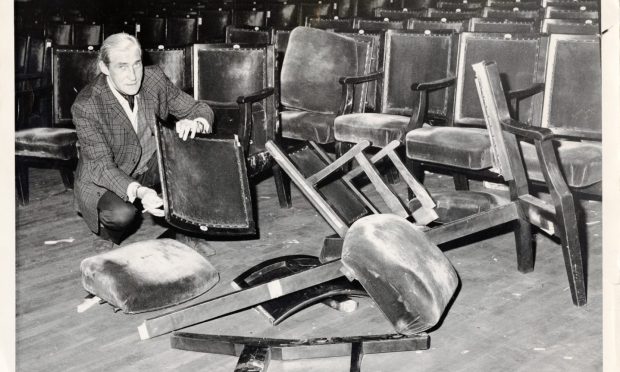
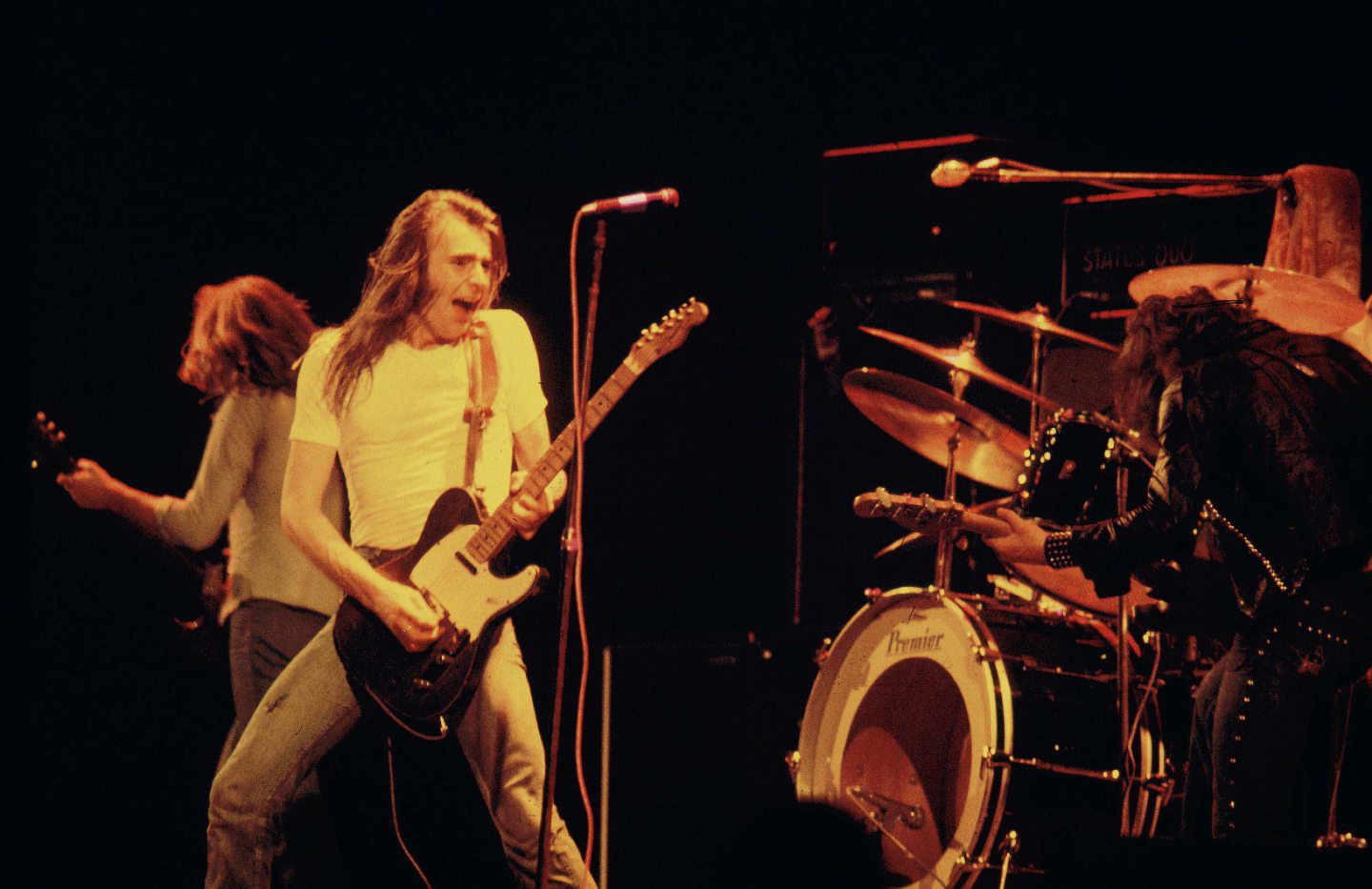
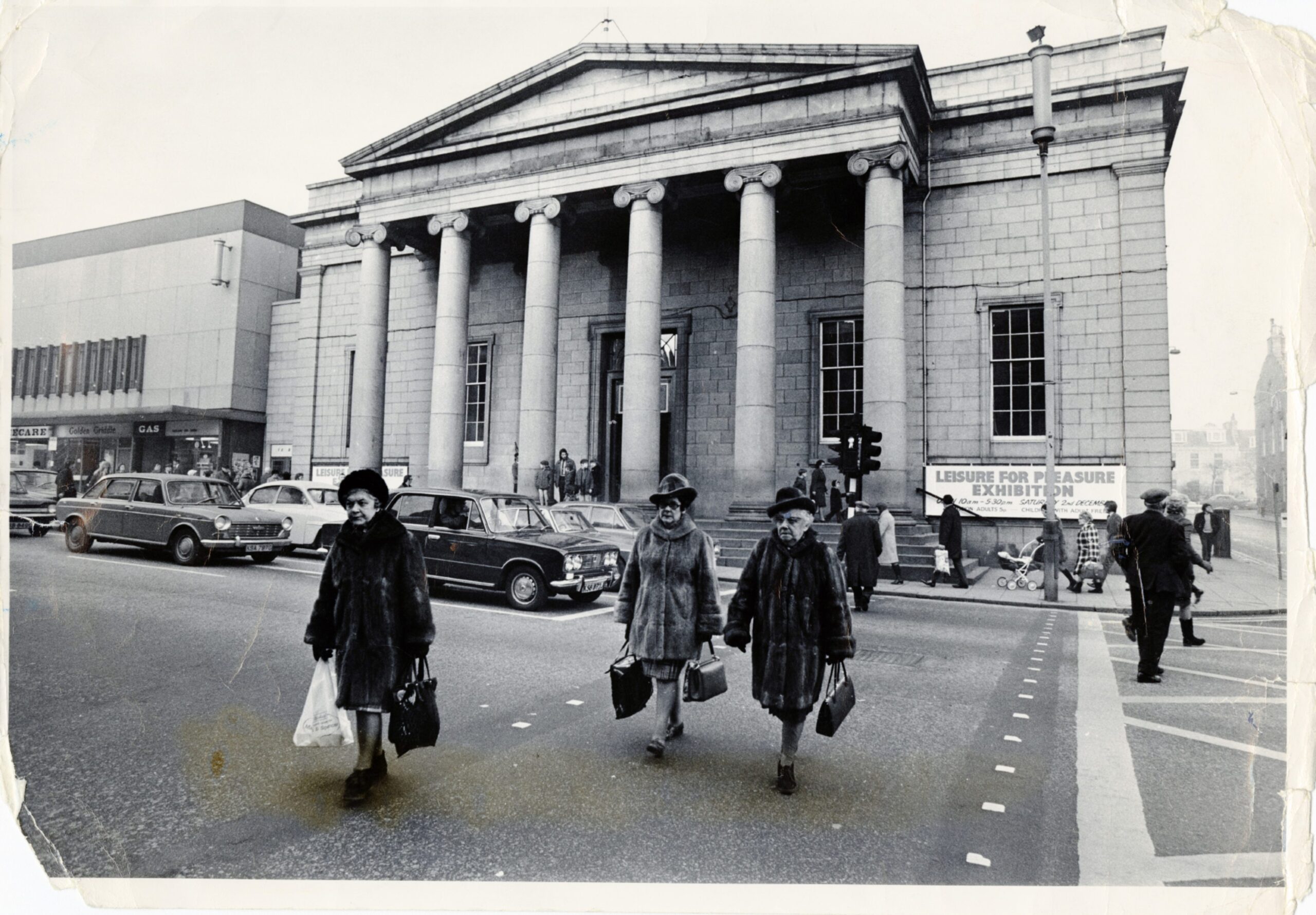
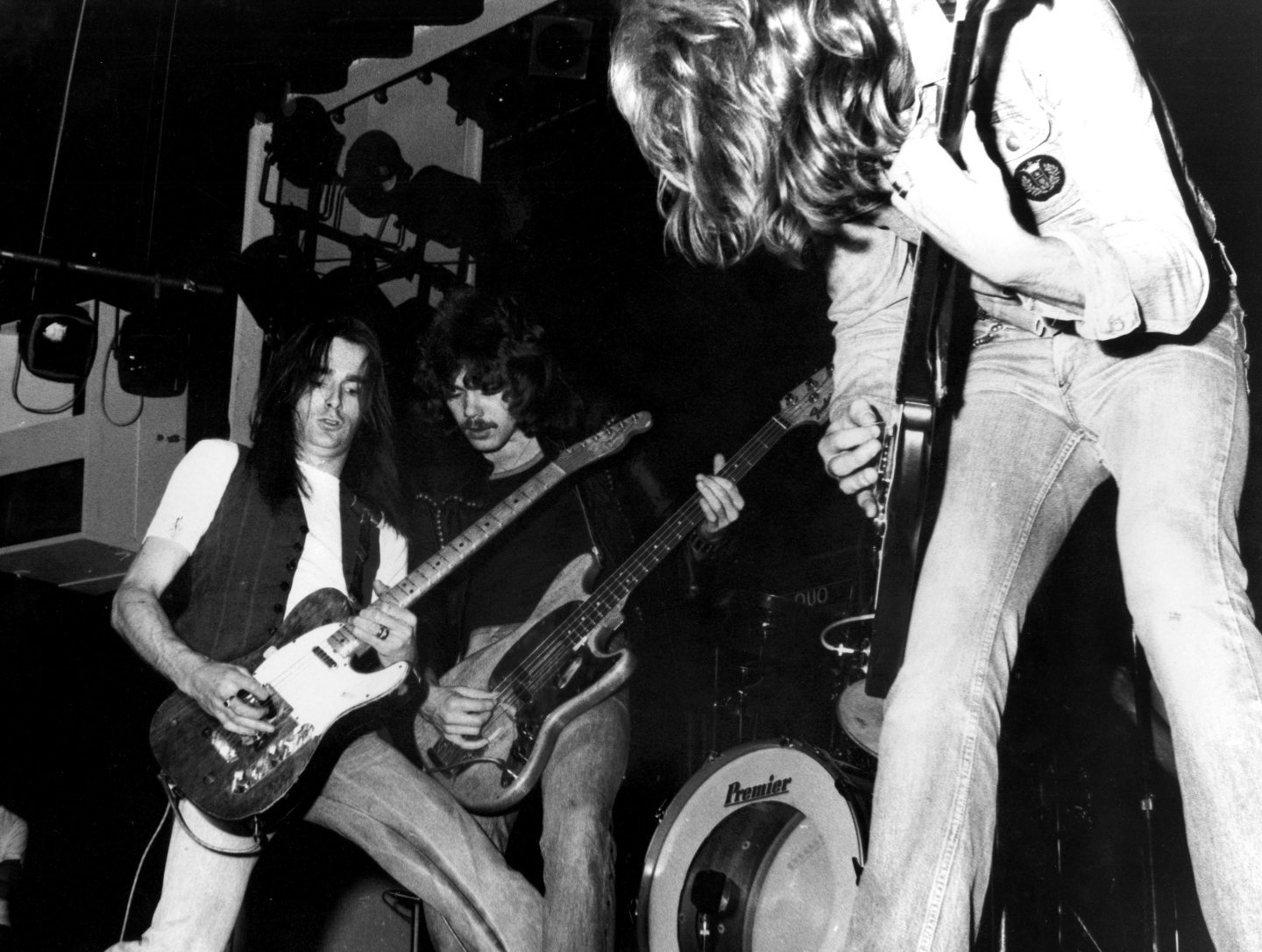
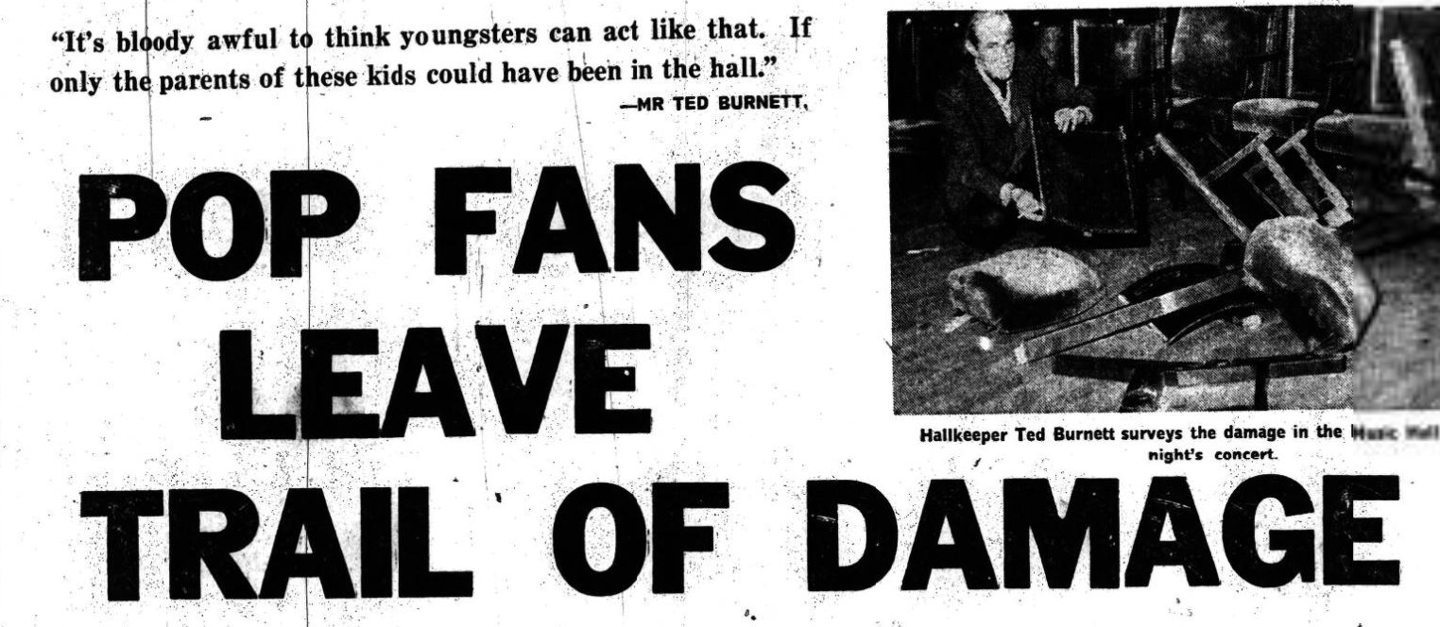

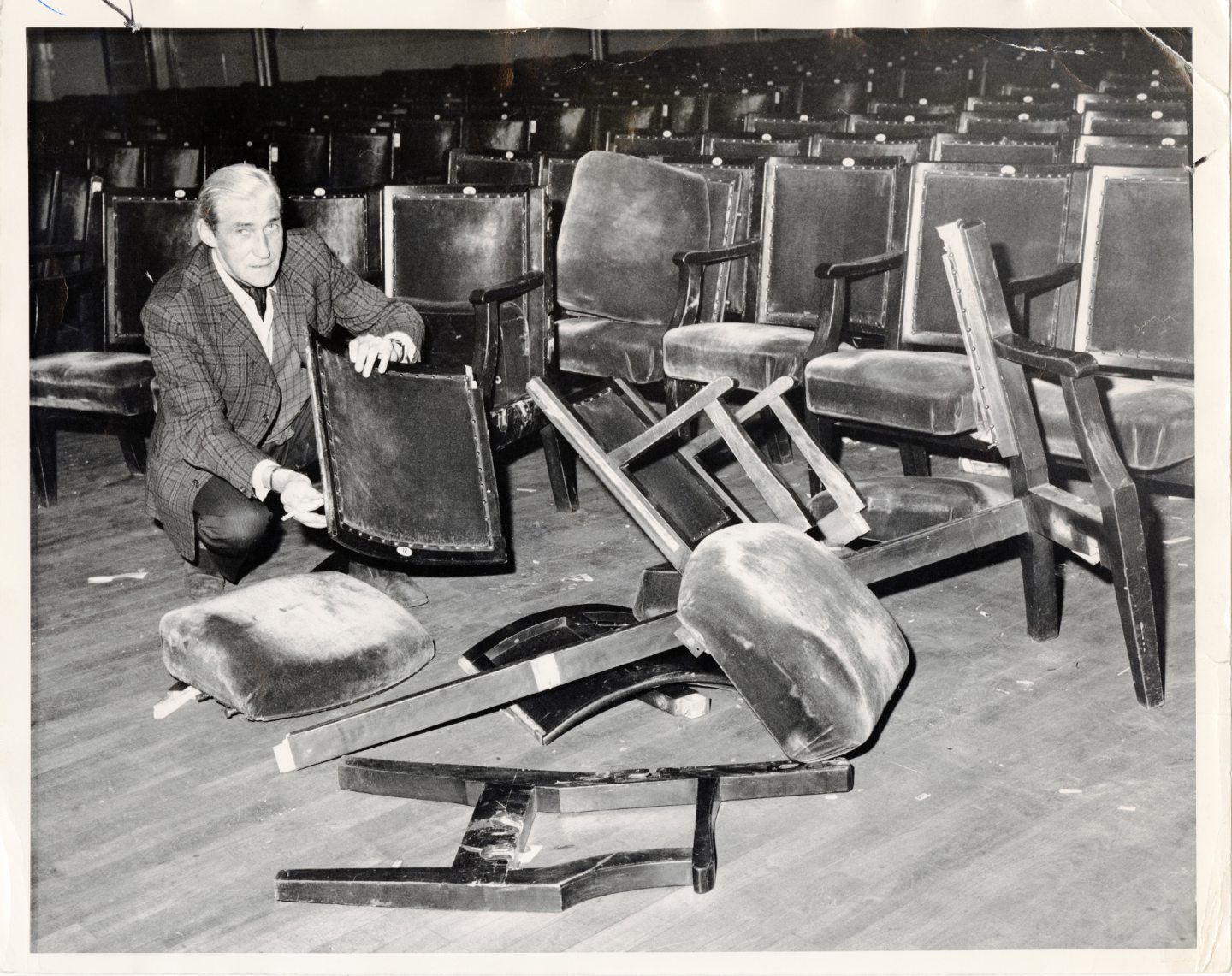

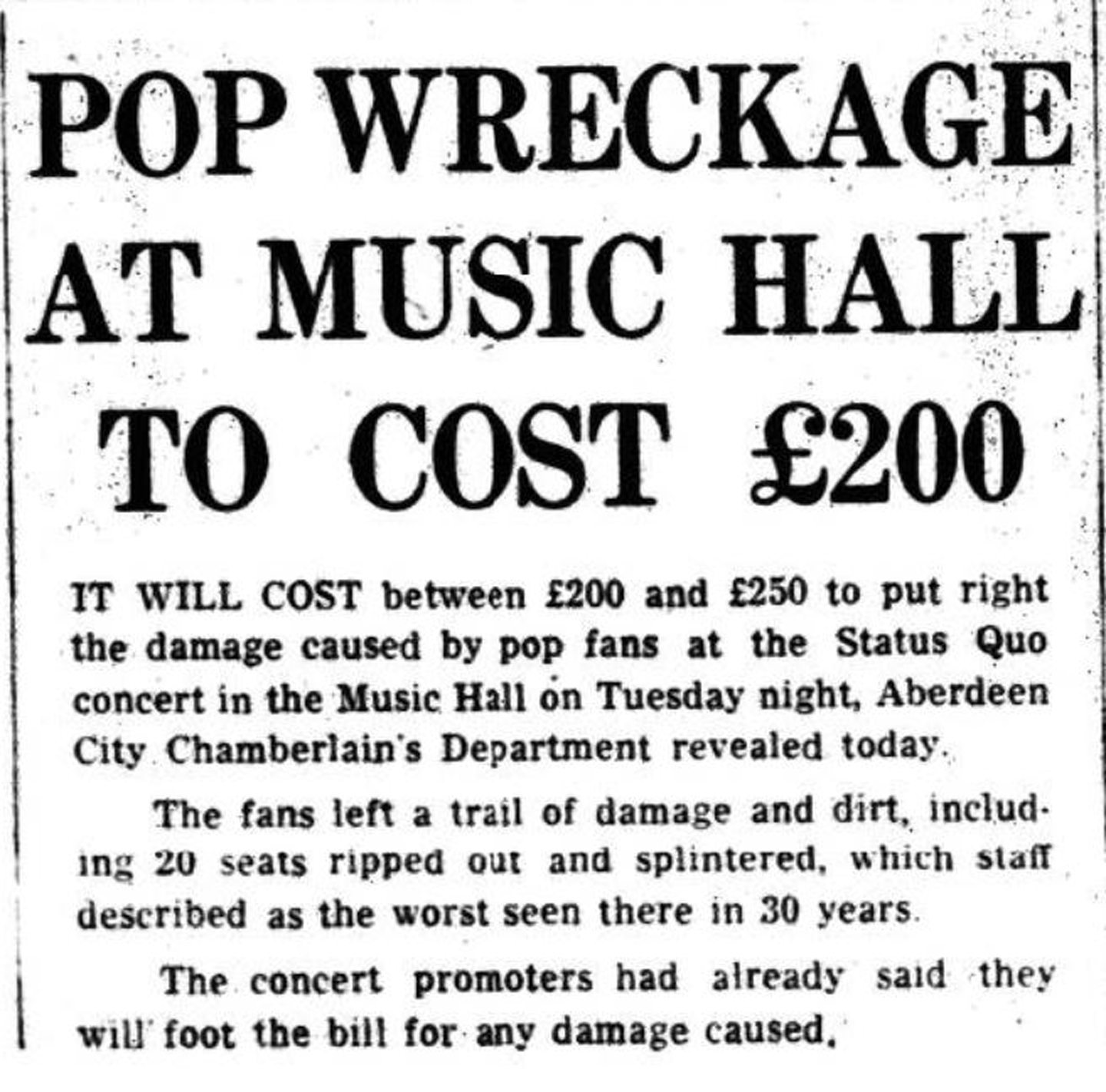
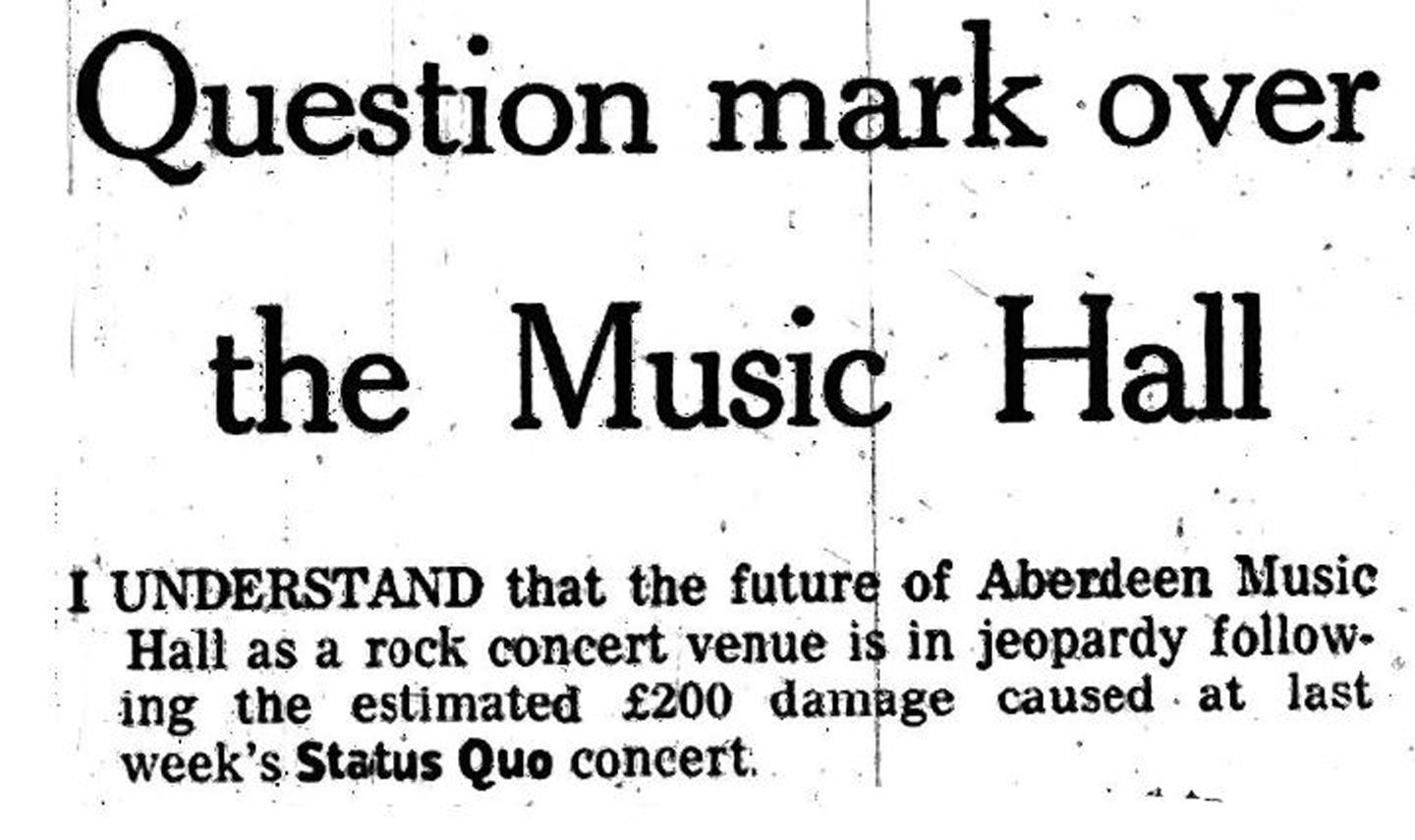
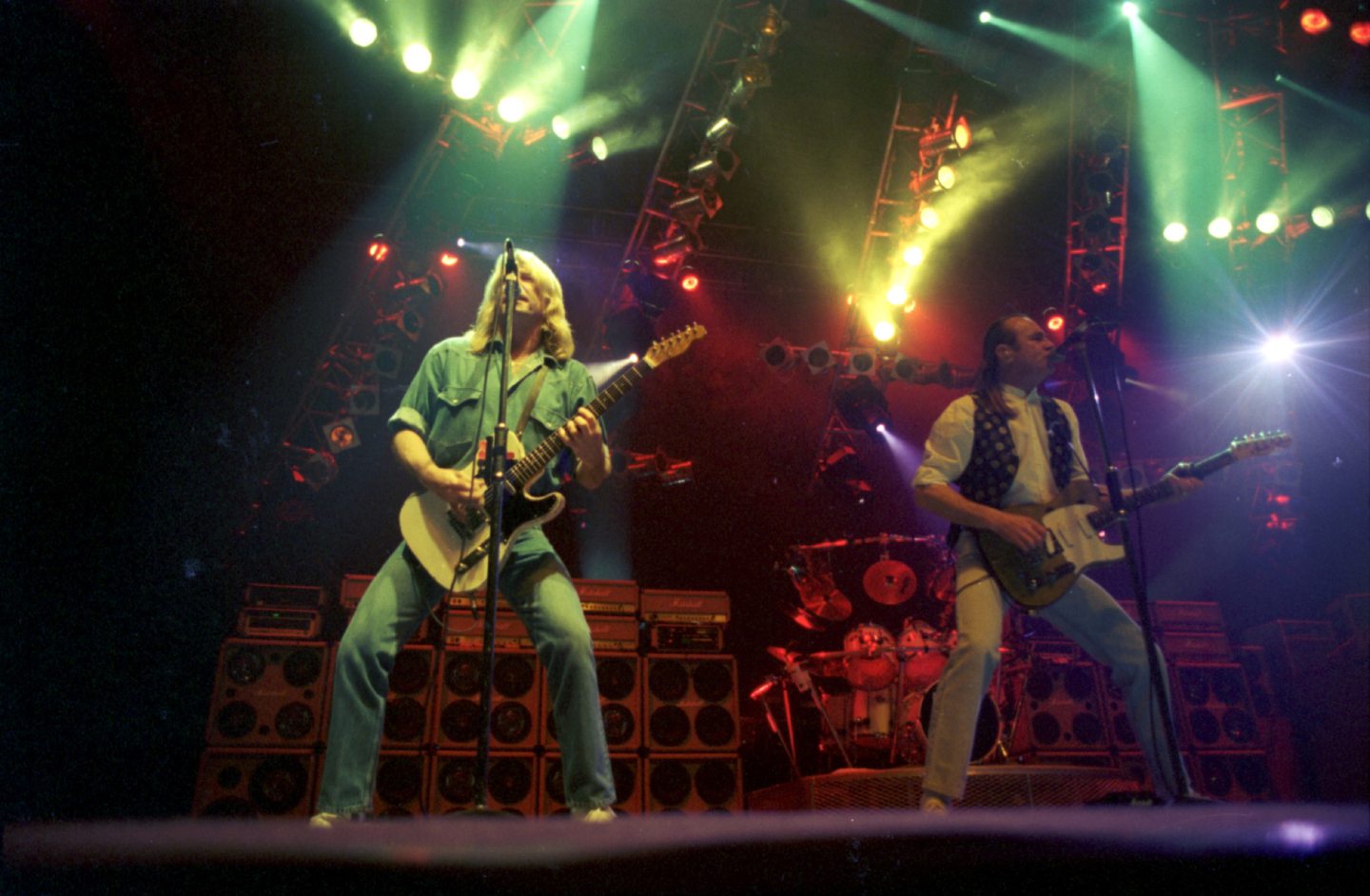
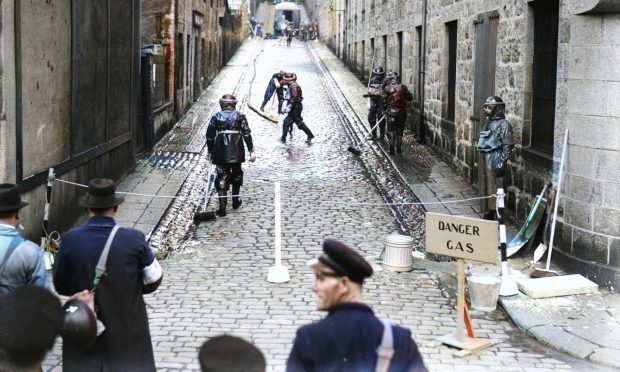

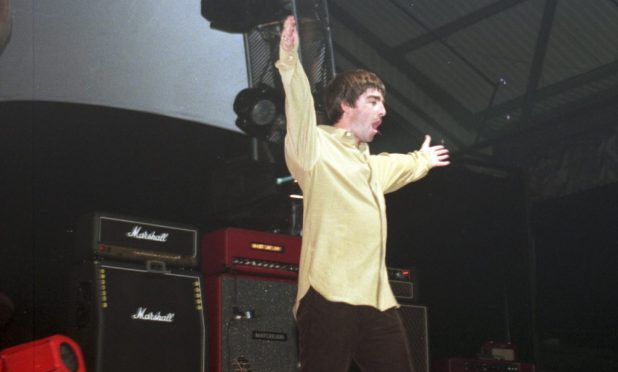
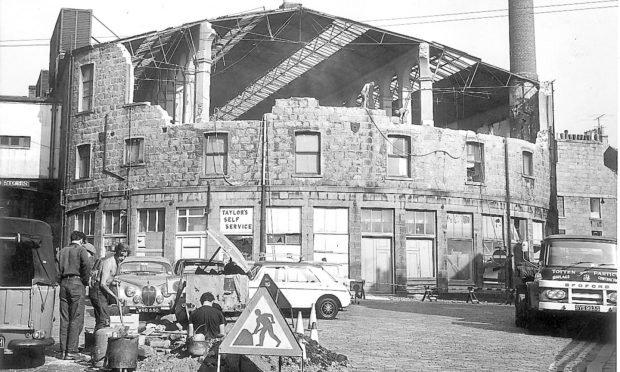


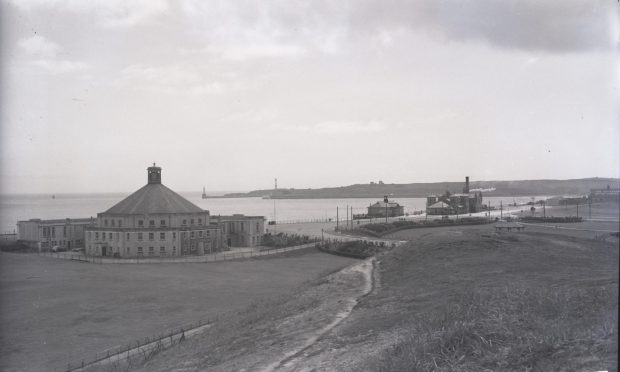

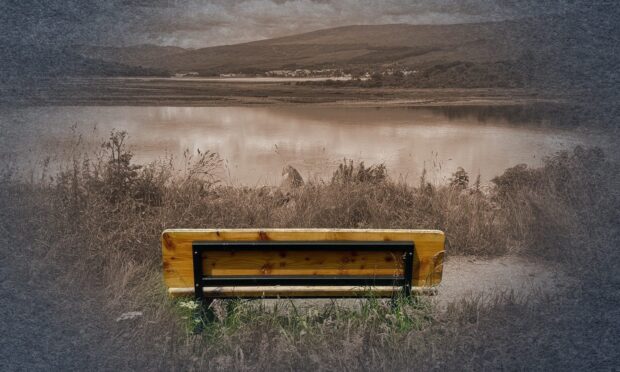
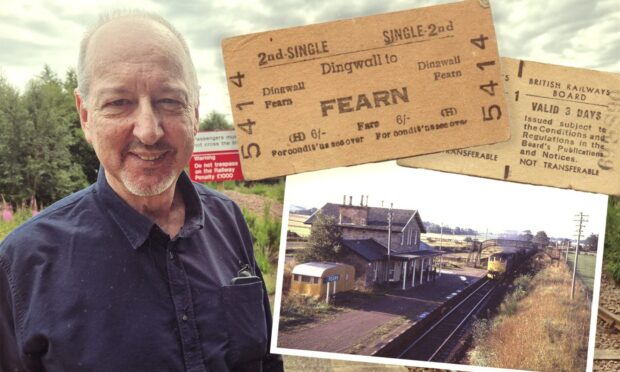
Conversation